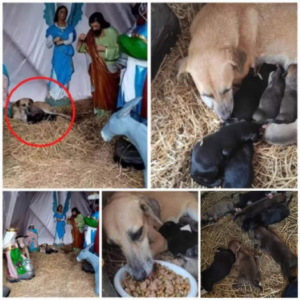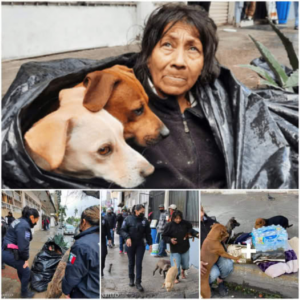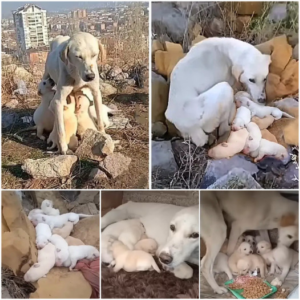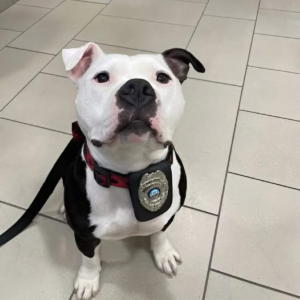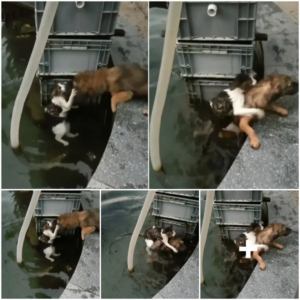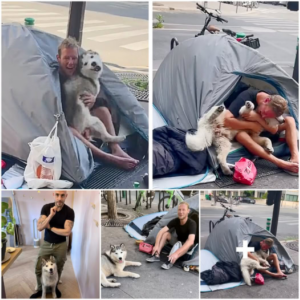In the shadow of a crumbling wall, a dog lay motionless, her thin body pressed against the cold, hard ground. Her coat, once a shining testament to her breed, was now matted with dirt and riddled with sores. Her eyes, dull and tired, scanned the distance as if hoping for a familiar face. But deep down, she knew the truth—her owner wasn’t coming back.
Her name was Lucy, and she had once been someone’s beloved companion. She had known the warmth of a home, the softness of a bed, and the gentle touch of a hand. But when sickness overtook her body, slowing her steps and dimming her playful spirit, the person she loved the most decided she was too much of a burden. They left her in an alley, near heaps of trash, as though she were nothing more than an inconvenience to be discarded.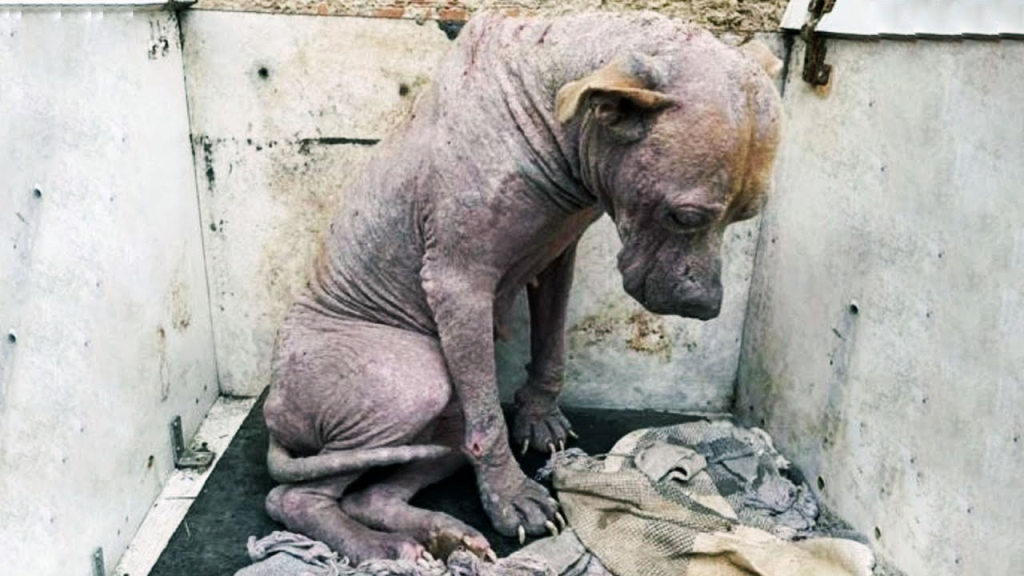
For days, Lucy waited in the same spot, her fragile body weakening as hunger gnawed at her belly and thirst dried her throat. Passersby ignored her, some glancing briefly before turning away, unwilling to face the sorrow in her pleading eyes.
It wasn’t until a kindhearted rescuer named Mia passed by that Lucy’s fate began to change. Mia, a volunteer at a local shelter, noticed the frail dog curled up against the wall. She approached cautiously, not wanting to frighten her.
“Hey there, sweet girl,” Mia whispered, kneeling down. Lucy didn’t move. She barely lifted her head, her energy too depleted to react. But as Mia extended her hand, Lucy’s nose twitched faintly, catching the scent of kindness.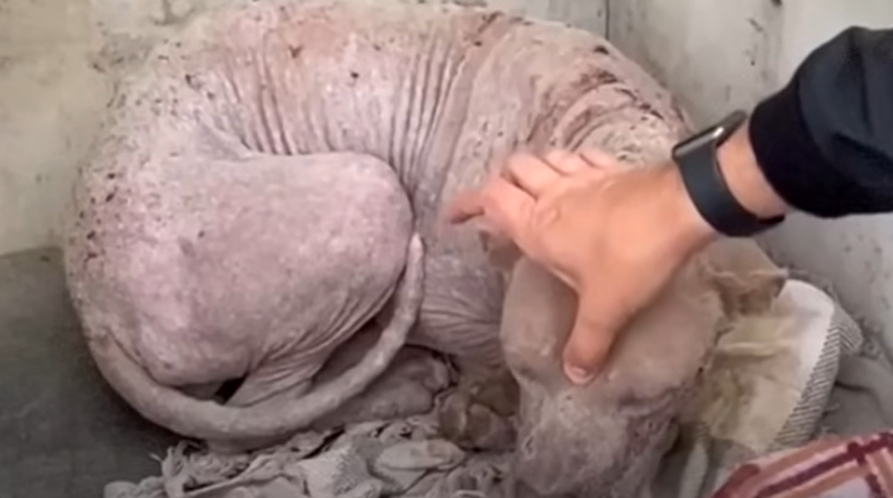
With patience and gentle words, Mia coaxed Lucy into letting her slip a leash around her neck. Lucy was too weak to resist. She stumbled as she tried to walk, her legs trembling under her weight. Mia scooped her up, cradling her like a child, and promised her a second chance.
At the shelter, the staff discovered the extent of Lucy’s suffering. Malnourished and severely dehydrated, she also bore a large, untreated wound on her side, which had become infected. Her once-bright eyes were clouded with pain and despair.
The road to recovery was long and uncertain. Lucy needed intensive care—medications for her infection, a nutrient-rich diet to rebuild her strength, and round-the-clock monitoring. But the greatest challenge wasn’t her physical healing; it was her broken spirit.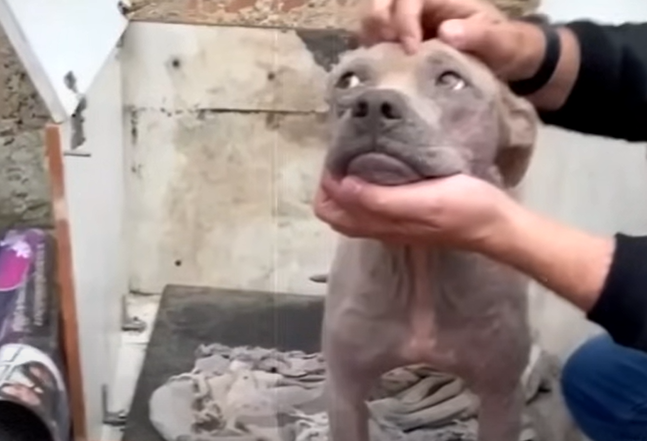
Lucy flinched at sudden movements, cowering as though expecting punishment. She avoided eye contact, her trust in humans shattered by the one who had betrayed her. It seemed she had resigned herself to a life of suffering, unable to believe that love still existed.
But Mia refused to give up on her. Every day, she visited Lucy, sitting quietly by her kennel and speaking in soothing tones. She brought soft blankets, toys, and even homemade treats to tempt Lucy to eat. Slowly, Lucy began to respond.
One day, as Mia sat beside her, Lucy did something extraordinary. She rested her head on Mia’s lap, letting out a soft sigh. It was the first sign that she was willing to trust again. From that moment, Lucy’s recovery gained momentum.
Weeks turned into months, and Lucy transformed. Her wounds healed, her fur grew back, and her eyes regained their sparkle. She started wagging her tail when Mia entered the room and even learned to play again.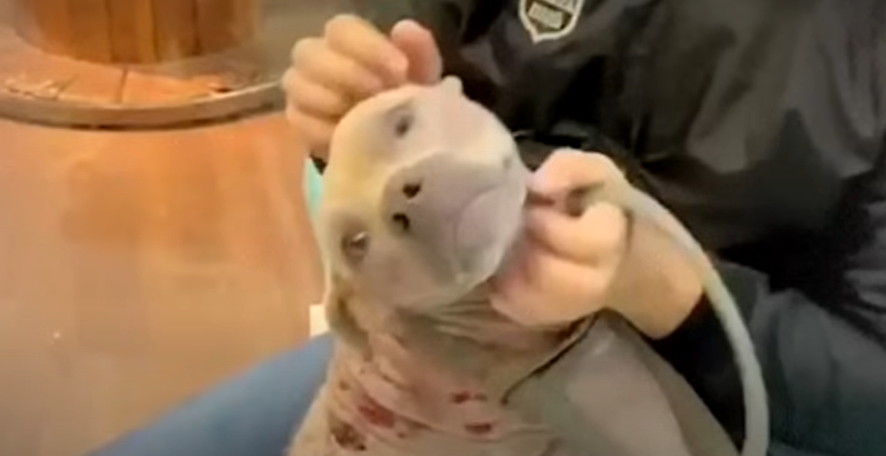
When the time came for Lucy to find a forever home, Mia knew she couldn’t let her go. Lucy had already found her home—with the person who had never stopped believing in her.
Today, Lucy is a picture of happiness. She spends her days basking in the sun, chasing after butterflies in the garden, and curling up beside Mia on the couch. Though the scars of her past remain, they no longer define her.
Lucy’s story is a testament to the resilience of animals and the healing power of love. She was abandoned while sick, betrayed by the one she trusted most, but she found her way back to a life filled with hope, joy, and unconditional love.
